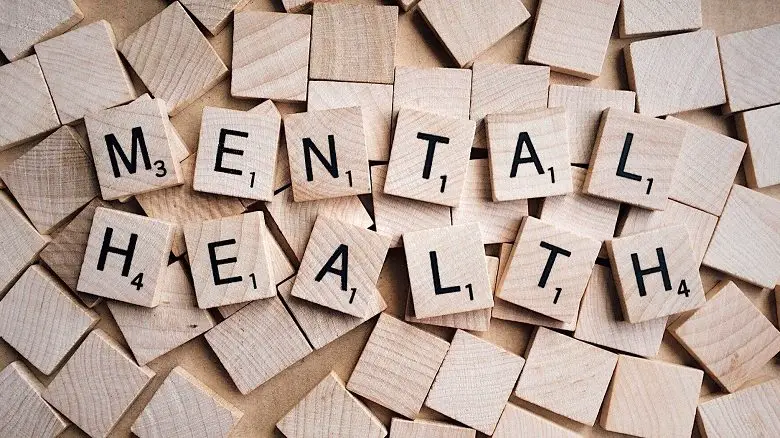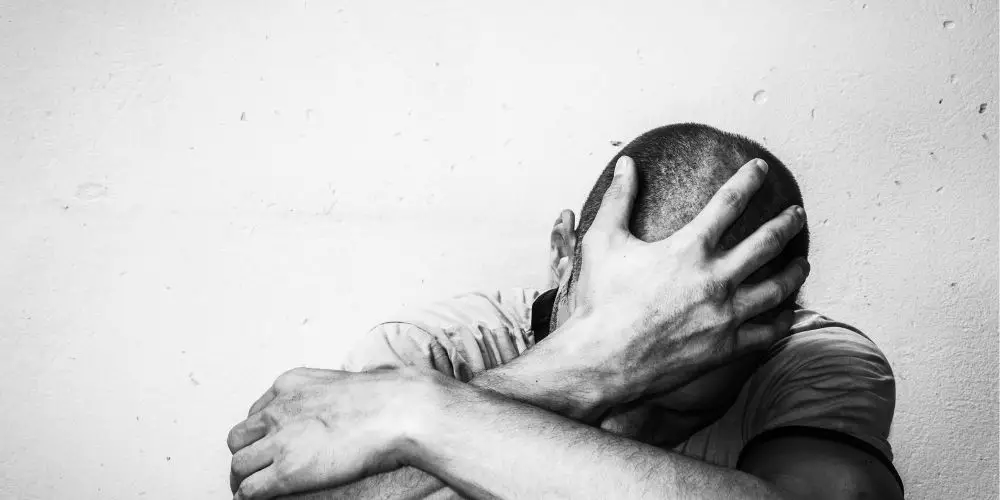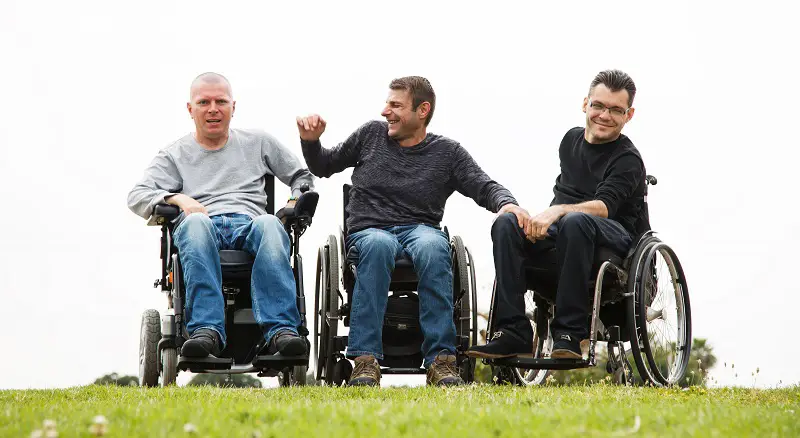
Is it OK for disabled people to have suicidal thoughts?
Discussing suicidal thoughts can be challenging for any person but even more so if you have a disability or long-term health condition. Mental health organisation, Spokz People – which provides wellbeing support for disabled people and their families – shares that we can have suicidal thoughts and advises us on ways we can overcome them.
When the book Me Before You by JoJo Moyes was made into a movie in 2016, there was an uproar in the disability community about the male protagonist Will – who became disabled after a motorcycle accident – choosing to end his life even though he had a home, lots of money and a girlfriend who loved him.
In response to the uproar, the author said she had spoken to disabled people before writing the story. Turns out, she only spoke to newly injured disabled people.
Many disabled people were understandably saying they had a right to life and non-disabled people (the majority of the viewing public) should not be encouraged further to think that all disabled people want to die.
But what if you, like Will, do have suicidal thoughts?
The reality is, there is so much negativity around being disabled and assumptions by the non-disabled population that of course, we must “all” feel suicidal “all” the time because they can’t imagine living our lives.
Unfortunately, the consequence of all these abounding assumptions is that we can often feel silenced to share any suicidal thoughts we may have, whether we think them just occasionally, for a month or longer.
We may feel silenced by our friends, families and even healthcare professionals who are supposed to be there to support us with our wellbeing and mental health.
There is often an unconscious push from society to act out the stereotypical role of “Supercrip”: to be happy, to “overcome the odds”, to hide the things that hurt, that are too much.
On top of that, many of us living with disability don’t want to talk about suicidal thoughts. This might be because we don’t want to worry our family members or friends more than we already think we do.
Or we may feel it adds to the stigma of being disabled if we were to share these thoughts with those around us. That we’re just proving their assumptions right.
This article is all about saying that if you do have these thoughts at times, or often, this is OK and there are spaces you can share them.
Spokz People are a non-profit organisation supporting disabled people since 2009. We have worked with hundreds of people and families and when given a safe space to talk, suicidal thoughts are often a topic for discussion.
Join the Spokz People Wellbeing Community and Platform now for £50 a year or £5 a month membership. You can also get a 30-day FREE trial to see how it can help you.

What makes disabled people feel suicidal?
When we dig a bit deeper, what people often feel suicidal about is not actually the impact of their impairment.
It may be, but it may also be about all the other stuff that being disabled brings – being isolated, not being able to find an employer willing to employ a disabled person, a lack of role models around us and repetitive negative experiences with government bodies, assessment or medical professionals and procedures. And it’s important to state that it may not be disability-related at all.
Mostly suicidal thoughts are around lack of control and choice in our lives. If you have an illness or condition that deteriorates, the fear of losing control, death or ill-treatment by support workers may lead you to these thoughts.
Or you may be in unhealthy relationships with spouses or family members who neglect or abuse you.
It’s important to know that the relentlessness of disabled living at times gets to us all and can lead to feelings of hopelessness. When you can’t see a future for yourself, is it any wonder you think it would be better if life ended now?
If you are newly disabled and so much of your life has changed, it may feel impossible to find a new you. Who am I supposed to be now? What is my purpose?
When something drastically changes in our lives and how we see ourselves and our meaning and purpose, it is understandable to have thoughts about whether it would be better if we were dead.
If you live with chronic pain or have experienced a lot of trauma, the thought of death may feel like a comfort, a way out, a way for the suffering to stop.
Many non-disabled people experience times of trauma, suffering and mental health distress that can give rise to suicidal thoughts.
It is important that in the disabled community, we find a way to be heard in this darkest of places. That we don’t shy away from these thoughts.
Christmas and winter time are particularly difficult times – things are less accessible, our mental health may be affected by the lack of light and cold and in these difficult times of cuts, many of us are struggling with affording heating, transport and the essential aids and equipment of disability living.
Suicidal thoughts give us control. Sometimes suicide feels like the best way to stop our pain or suffering. Knowing we have that choice gives us a sense of control and that we can choose to end our lives if we need to.
The difference between suicidal thoughts and self-harm

Sometimes suicidal thoughts may be connected to self-harm. Self-harm is often misunderstood and judged or criticised.
The reality is that self-harm can take on many forms, from neglecting or not caring for your body to actively causing it harm. Self-harm often makes crises more manageable.
The pain of self-harm reminds us we are alive and for some people, it may also include a hope of trying to reach out to be heard and understood by someone.
At Spokz People, we open up the conversation around self-harm, explore how it helps you and then work towards other less harmful ways you can achieve the same outcome for your mental health.
What things can help if you have suicidal thoughts?
Contact helplines
You can always call the Samaritans or Hope Line UK to speak to someone. Shout is a 24/7 text service if you prefer that.
The Samaritans listen without judgement or intervention. Hope Line UK offers more active support around suicide prevention.
Reasons for living
It can be helpful to make a list of reasons for living. This could be things that are currently in your life such as healthy relationships or ways that you feel you contribute to society and those around you.
The Blurt Foundation
The Blurt Foundation (Blurt It Out) also have some great free resources around planning for a crisis.
1-2-1 support
It may be that we need specialist 1-2-1 support to explore the pros and cons of suicide without judgement or criticism with someone who isn’t biased either for or against suicide.
The outcome of that may be that after a discussion we can choose death fully informed as the preferred option for our situation. Or it might be that through the process of 1-2-1 support, we find better ways to manage our situation or find a new purpose for our lives.
With the right support, many of us, can learn to find a way through our situation, find meaning and have more moments of joy and contentment in our lives.
Either way, it can be helpful to speak to someone to make sure that we’ve explored all options.
Spokz People have a small directory of therapists in the UK who have disability experience.
Learn from others
Sometimes reading stories about people and circumstances that are different to ours can help. Sometimes it can be helpful to hear about someone who seems worse off can be helpful.
For example, Viktor Frankl’s book Man’s Search for Meaning explores Viktor’s time in a WWII concentration camp where he met people who still had hope and purpose even though they could literally be killed by prison staff at any second.
Other times, we may gain insights through hearing and reading about stories from those whose situations seem better than our own.
Remember you are not alone and there are spaces where it is OK to share these thoughts and feelings, where it is OK to be vulnerable. There is strength in being honest and vulnerable when with safe people who get you.
What other support is available?
Counselling psychology programs, such as the Masters in Counseling Psychology online offered by Felician University, prepare graduates to offer a range of services including cognitive behavioural therapy, dialectical behaviour therapy, crisis intervention, and trauma-informed care.
These approaches can be highly effective in treating suicidal ideation, depression, anxiety disorders, PTSD, and more.
Counseling psychologists work in various settings such as community mental health clinics, hospitals, schools, employee assistance programs, and private practices. They play a vital role in suicide prevention efforts by providing assessments, developing safety plans, and offering ongoing support to at-risk individuals.
If you are having thoughts of suicide or concerned about your mental well-being, reach out for help. You can start by contacting a local mental health provider, calling a suicide prevention lifeline, or exploring online directories to find a licensed counselling psychologist in your area. Remember, you don’t have to face this alone – compassionate, knowledgeable professionals are available to support you on your healing journey.
Where can you find out more about Spokz People?

If you’d like to speak to us in person about our support, join our Live Online Q&A Open Evening on Monday 13th February 2023 at 7.30pm. You can register on Eventbrite.
Spokz People 30-day FREE trial
To help people get a sense of whether our support is for you, we now have a 30-day FREE trial.
As well as an extensive wellbeing programme you can work through at your own pace, you can also connect with the other members through our community forum, 1-2-1 chat and our weekly group meetings where we discuss all things wellbeing related.
After your 30-day FREE trial, your membership automatically goes onto £5 a month or £50 a year, depending on what you prefer. You can cancel your membership at any point in your profile or by emailing info@spokzpeople.org.uk.
To find out more about Spokz People’s mental health services and how to sign up for its online wellbeing community and programme, visit the Spokz People website. If you have any questions about the platform or Spokz People, please email info@spokzpeople.org.uk.
By Spokz People
Updated May 2024
Latest Research and Initiatives on Disability and Suicide
Recent studies have shed more light on the elevated risk of suicidal thoughts and behaviours among individuals with disabilities:
- A 2021 analysis of national survey data found that 19.8% of U.S. adults have a disability, and those with disabilities were over 2 times more likely to report suicidal ideation, planning, and attempts compared to non-disabled individuals. Risk increased with the number of functional limitations, with those experiencing 5 or more limitations facing up to 8 times higher odds of attempting suicide.
- During the COVID-19 pandemic, a study in Bangladesh revealed a major disparity, with 30.8% of people with disabilities experiencing suicidal ideation, compared to only 8.3% of non-disabled participants. Developing a disability later in life, sleep disturbances and substance use were identified as significant risk factors in this population.
- Another U.S. study confirmed that people with cognitive limitations, challenges with self-care/independent living, or multiple disabilities had the highest risk of suicidal thoughts, plans and attempts. The authors emphasized the need for accessible education on suicide prevention for the disability community, as well as training for healthcare providers and caregivers on screening and intervention.
These findings underscore the urgent need for targeted suicide prevention strategies and support services for people with disabilities. Some positive developments on this front include:
- The UK government’s 2023-2028 suicide prevention strategy explicitly recognizes the disparities faced by the disability community. It outlines plans to improve training for professionals, expand crisis services, and address systemic barriers to accessing mental healthcare and community support.
- Disability rights organizations are leading the charge to promote peer support, combat stigma and ableism, and advocate for policies that improve quality of life. Groups like LiveOn are developing anti-suicide initiatives grounded in disability pride and empowerment.
- Crisis hotlines and online chat services, such as those provided by Samaritans offer vital support for people with disabilities experiencing suicidal thoughts. These services are accessible via phone, email, postal mail, and text relay for d/Deaf and hard-of-hearing individuals.
While acknowledging and validating the immense challenges the disability community faces, it’s crucial to combat the myth that disability inherently leads to a lesser quality of life. With adequate accommodations, equal opportunities, and freedom from discrimination, people with disabilities can lead fulfilling lives.
Increasing access to mental health support, affordable healthcare, assistive technology, and other resources must be a priority.
Openly discussing this sensitive topic is an important step in both destigmatizing suicidal thoughts and advocating for change. People with disabilities deserve to have their experiences heard, their struggles addressed, and their lives valued. Disability-led suicide prevention efforts, combined with large-scale accessibility and policy improvements, offer a path forward – but it will take ongoing collaboration between the disability community, allies, and institutions to create a more inclusive and supportive society.
More on Disability Horizons…
- How to manage dark thoughts if you’re suffering from depression
- Adapting to life in wheelchair -gadgets that help
- 5 high-profile disabled people share their mental health journeys
- The value of peer support and how it can benefit your wellbeing if you have a disability or health condition
- 8 accessible products to help you enjoy arts and crafts if you have a disability